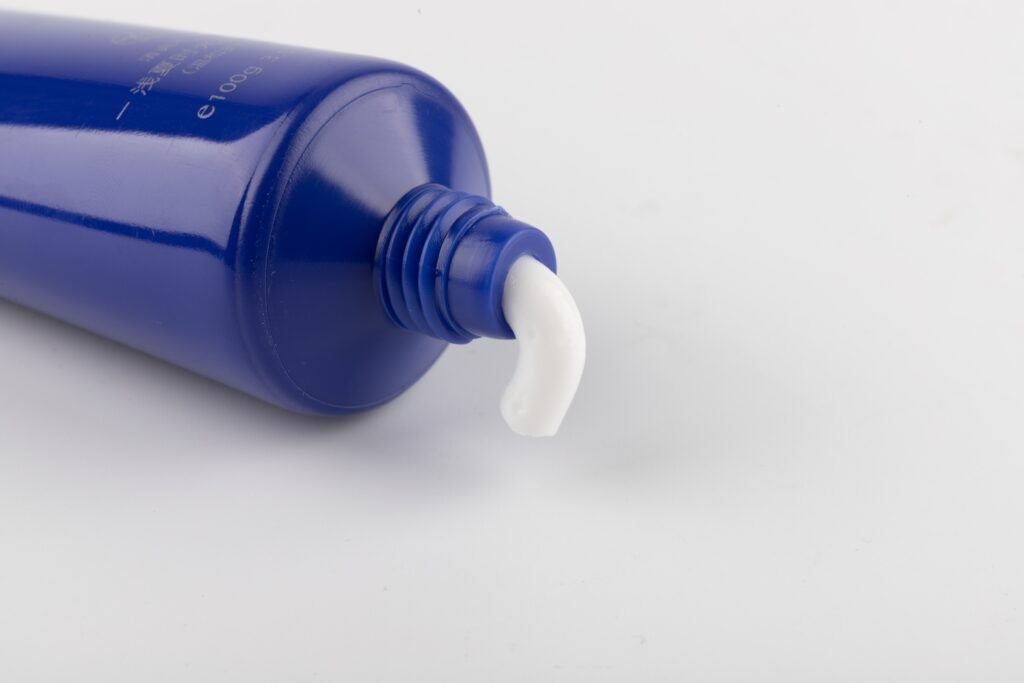Are you overwhelmed by the countless options in the toothpaste aisle? Look no further! Our latest article, titled “A Comprehensive Breakdown: Finding the Perfect Toothpaste for Your Needs,” is here to guide you through the process of selecting the ideal toothpaste for you. We understand that everyone has different oral health needs, which is why we have compiled a complete guide to help you make an informed decision. Whether you’re looking for toothpaste that fights cavities, freshens breath, or targets sensitivity, we’ve got you covered. Say goodbye to confusion and hello to a healthier smile. Let’s dive right in!
Understanding Your Dental Needs
Taking care of your dental health is essential for maintaining a bright smile and preventing oral health problems. To ensure you are using the right toothpaste for your specific needs, it is important to understand your dental concerns, consider any existing dental conditions, and consult with your dentist.
Identifying your dental concerns
Before selecting a toothpaste, it is important to identify your specific dental concerns. These concerns may include things like tooth sensitivity, tartar buildup, yellowing or stained teeth, or the desire for an all-natural product. By pinpointing your primary concerns, you can choose a toothpaste that addresses these issues effectively.
Considering any existing dental conditions
If you have any existing dental conditions such as cavities, gum disease, or enamel erosion, it is crucial to choose a toothpaste that caters to these conditions. Consult with your dentist to get a better understanding of your oral health needs and any specific recommendations they may have for toothpaste selection.
Consulting with your dentist
Your dentist is your best resource when it comes to understanding your dental needs. Schedule regular check-ups and dental cleanings to get professional advice on which toothpaste is best suited for your oral health. Your dentist can provide valuable insights and recommend toothpaste brands or specific ingredients to address your individual dental concerns.
Key Ingredients in Toothpaste
Understanding the key ingredients in toothpaste is crucial for selecting the right product. Here are some common ingredients you should be aware of:
Fluoride
Fluoride is perhaps the most important ingredient in toothpaste. This mineral helps to strengthen tooth enamel, fight against cavities, and prevent tooth decay. Be sure to choose a toothpaste that contains fluoride, as it is essential for maintaining good oral health.
Antibacterial agents
Toothpaste often contains antibacterial agents such as triclosan or zinc citrate. These agents help to eliminate bacteria and prevent plaque buildup, reducing the risk of gum disease and bad breath.
Whitening agents
Many toothpaste formulas also include whitening agents like hydrogen peroxide or baking soda. These ingredients help to remove surface stains and brighten your smile, giving you a whiter and more radiant appearance.
Desensitizing agents
For those with tooth sensitivity, desensitizing agents like potassium nitrate or strontium chloride can provide relief. These ingredients work by blocking nerve signals and reducing tooth sensitivity, allowing you to enjoy hot or cold foods and drinks without discomfort.
Tartar control agents
Toothpaste with tartar control agents, such as pyrophosphates, can help prevent the buildup of tartar on your teeth. Tartar is hardened plaque that forms over time and can only be removed by a dental professional. Using a toothpaste that helps control tartar can reduce the risk of gum disease and keep your teeth cleaner and healthier.
Natural ingredients
If you prefer natural products, look for toothpaste that includes natural ingredients like tea tree oil, aloe vera, or charcoal. These natural ingredients can offer benefits such as antimicrobial properties or teeth whitening effects.
Artificial sweeteners
Many toothpaste brands use artificial sweeteners like saccharin or sorbitol to improve the taste of their products. While these sweeteners do not contribute to tooth decay, if you have specific dietary restrictions or allergies, be sure to check the ingredients list before choosing a toothpaste containing artificial sweeteners.

This image is property of images.unsplash.com.
Different Types of Toothpaste
Toothpaste comes in various types, each designed to address specific dental needs. Understanding the different types of toothpaste available can help you make an informed decision.
Fluoride toothpaste
Fluoride toothpaste is the most commonly used type and is suitable for most people. It contains the essential mineral fluoride, which helps prevent cavities and strengthen tooth enamel.
Whitening toothpaste
Whitening toothpaste is formulated with ingredients like hydrogen peroxide or baking soda to remove surface stains and give your teeth a whiter appearance. It is important to note that whitening toothpaste can only lighten stains on the surface of your teeth and may not provide drastic whitening results.
Sensitive teeth toothpaste
If you experience tooth sensitivity, it is worth considering toothpaste specifically designed for sensitive teeth. These toothpastes contain desensitizing agents that help alleviate sensitivity and provide relief when consuming hot, cold, or acidic foods and beverages.
Tartar control toothpaste
Toothpaste with tartar control properties contains ingredients that help prevent the buildup of tartar on your teeth. This type of toothpaste is particularly beneficial for those prone to tartar formation or with a history of gum disease.
Gel toothpaste
Gel toothpaste has a thick and smooth consistency, making it easy to spread across your teeth and gums. It generally contains similar ingredients to traditional toothpaste but may be preferred by those who dislike the texture of paste toothpaste.
Natural toothpaste
Natural toothpaste is becoming increasingly popular for those seeking more environmentally friendly options. These toothpastes often contain natural ingredients like tea tree oil, baking soda, or coconut oil and do not contain artificial colors, flavors, or preservatives.
Understanding Fluoride Toothpaste
Fluoride toothpaste is an essential tool for maintaining good oral health. Understanding its importance and benefits can help you make an informed decision when selecting a toothpaste.
The importance of fluoride
Fluoride is a naturally occurring mineral that plays a crucial role in keeping your teeth strong and healthy. It helps to prevent tooth decay by remineralizing weakened tooth enamel and making it more resistant to acid attacks.
Cavity prevention
One of the primary benefits of fluoride toothpaste is its ability to prevent cavities. When used in conjunction with proper oral hygiene practices, fluoride toothpaste can significantly reduce the risk of tooth decay by strengthening your tooth enamel.
Strengthening tooth enamel
Fluoride strengthens tooth enamel by replenishing essential minerals that are lost due to acids produced by oral bacteria, sugary foods, or acidic beverages. This remineralization process helps to repair early signs of tooth decay and prevent the progression of dental caries.
Considering fluoride concentration
Different toothpaste brands contain varying concentrations of fluoride. It is important to follow the recommendations of your dentist regarding the appropriate fluoride concentration for your specific needs. Children under six years old should use children’s toothpaste, which typically has lower fluoride content to prevent excessive fluoride ingestion.

This image is property of images.unsplash.com.
Exploring Whitening Toothpaste
If you desire a brighter, whiter smile, whitening toothpaste may be a viable option. Understanding how whitening toothpaste works and its limitations can help you manage your expectations.
How whitening toothpaste works
Most whitening toothpastes work by incorporating mild abrasives or chemical agents that help remove surface stains. These toothpastes are not typically as effective as professional whitening treatments but can provide gradual improvement over time.
Considering different whitening agents
Whitening toothpaste may contain ingredients like hydrogen peroxide, baking soda, or activated charcoal, which can help lighten surface stains. If you are considering whitening toothpaste, it is important to choose a reputable brand and consult with your dentist for personalized advice.
Effectiveness and limitations
It is important to manage your expectations when using whitening toothpaste. While it can help lighten surface stains, it cannot change the natural color of your teeth or provide significant whitening results. For more noticeable whitening, professional treatments such as in-office whitening or at-home whitening kits prescribed by a dentist may be a better option.
Addressing Sensitive Teeth
Tooth sensitivity can be a frustrating and uncomfortable experience. Understanding the causes, ingredients, and management techniques for sensitive teeth toothpaste can alleviate your discomfort.
Causes of tooth sensitivity
Tooth sensitivity is often caused by exposed dentin or worn tooth enamel. This exposure can occur due to factors such as tooth grinding, gum recession, aggressive brushing, or dental conditions like cavities or cracked teeth.
Ingredients for sensitive teeth toothpaste
Toothpaste for sensitive teeth typically contains desensitizing agents such as potassium nitrate or strontium chloride. These ingredients work by blocking the nerve signals that trigger tooth sensitivity, providing relief and allowing you to consume hot, cold, or acidic foods and beverages more comfortably.
Managing tooth sensitivity
Using toothpaste designed for sensitive teeth is only one aspect of managing tooth sensitivity. It is also important to practice proper oral hygiene, avoid aggressive brushing or consuming excessively hot or cold foods, and visit your dentist regularly to address any underlying dental issues contributing to your sensitivity.

This image is property of images.unsplash.com.
Tartar Control Toothpaste: What You Need to Know
Tartar buildup can contribute to gum disease and other oral health issues, making tartar control toothpaste a valuable addition to your oral care routine. Understanding tartar buildup, relevant ingredients, and the limitations of tartar control toothpaste can help you maintain a healthy smile.
Understanding tartar buildup
Tartar, also known as calculus, is a hardened form of plaque that forms when plaque is not adequately removed from your teeth. It can only be removed through professional dental cleanings, making the prevention of tartar buildup essential for oral health.
Ingredients for tartar control toothpaste
Tartar control toothpaste typically contains ingredients like pyrophosphates or zinc citrate, which help to inhibit the formation of tartar. These ingredients work by binding calcium in your saliva, preventing it from mineralizing and forming hard deposits on your teeth.
Effectiveness and limitations
While tartar control toothpaste can help reduce tartar buildup, it is not a substitute for professional dental cleanings. Regular visits to your dentist for comprehensive cleanings are still necessary to remove any accumulated tartar and ensure optimal oral health.
Choosing Between Gel and Paste Toothpaste
When it comes to toothpaste, you may have the choice between gel and paste formulations. Understanding the differences in texture, consistency, effectiveness, and personal preferences can help you determine which type is right for you.
Texture and consistency
Gel toothpaste typically has a smooth and translucent appearance, with a softer texture compared to traditional paste toothpaste. Paste toothpaste, on the other hand, has a thicker and more opaque consistency. The choice between gel and paste toothpaste often comes down to personal preference and how the product feels during brushing.
Effectiveness and preferences
Both gel and paste toothpaste can effectively clean your teeth and provide the necessary oral care benefits. The decision between the two primarily comes down to personal preference and how each type feels and works for you. Some individuals may find that gel toothpaste spreads more easily, while others prefer the texture and thickness of paste toothpaste.
Exploring Natural Toothpaste Options
If you prefer to use natural products, there are toothpaste options available that contain natural ingredients. Understanding the benefits, natural ingredients to look for, and any limitations of natural toothpaste can help you make an informed decision.
Benefits of natural toothpaste
Natural toothpaste offers several potential benefits. It often avoids artificial colors, flavors, and preservatives commonly found in conventional toothpaste. Furthermore, natural toothpaste may include ingredients with antimicrobial, anti-inflammatory, or whitening properties, providing additional oral health benefits.
Natural ingredients to look for
When choosing natural toothpaste, look for ingredients like tea tree oil, aloe vera, baking soda, or charcoal. Tea tree oil and aloe vera have antimicrobial properties that can help combat oral bacteria. Baking soda can act as a gentle abrasive to remove surface stains, while charcoal has the potential to whiten teeth.
Effectiveness and limitations
Natural toothpaste can be an effective option for maintaining good oral health. However, it is important to note that the effectiveness may vary depending on the specific brand and formulation. Natural toothpaste might not provide the same level of protection against cavities or gum disease as toothpaste containing fluoride or other active ingredients.
Considering Additional Factors
In addition to understanding the different types of toothpaste and their key ingredients, considering additional factors can help you make the best choice for your needs.
Flavor and taste preferences
Toothpaste comes in a wide variety of flavors, from mint to fruit or even exotic options. Choose a flavor that you enjoy and find pleasant to use during your oral care routine. Enjoying the flavor can make brushing more enjoyable and encourage proper brushing habits.
Price and affordability
Toothpaste is available at various price points to suit different budgets. Consider the price when selecting toothpaste, but also take into account the quality, effectiveness, and ingredients of the product. Remember, investing in good oral care products can help prevent costly dental treatments down the line.
Brand reputation and recommendations
Reputable brands often have a history of producing quality oral care products. Consider the reputation of the toothpaste brand and their commitment to oral health when making your decision. Additionally, seek recommendations from family, friends, or dental professionals who can provide insights into reliable toothpaste options.
Other dental products and treatments
Consider your overall oral care routine and whether any additional dental products or treatments may complement your toothpaste choice. This may include mouthwash, dental floss, electric toothbrushes, or professional dental treatments like teeth cleanings or whitening procedures. Ensuring that your toothpaste aligns with your overall oral care approach can lead to optimal dental health.
In conclusion, choosing the right toothpaste is essential for maintaining good oral health. By understanding your dental needs, identifying your concerns, and consulting with your dentist, you can make an informed decision. Consider the key ingredients, different types of toothpaste, and their specific benefits. Understand the importance of fluoride, implications of whitening toothpaste, and relief for sensitive teeth. Explore tartar control toothpaste, choose between gel and paste formulations, and consider natural toothpaste options. Lastly, take into account additional factors such as flavor preferences, price, brand reputation, and your overall oral care routine. Remember, your dentist is your best resource for personalized advice and recommendations. With the right toothpaste, you can maintain healthy teeth and gums, ensuring a confident and radiant smile.
